All about the profession of a mechanic for the repair of technological installations
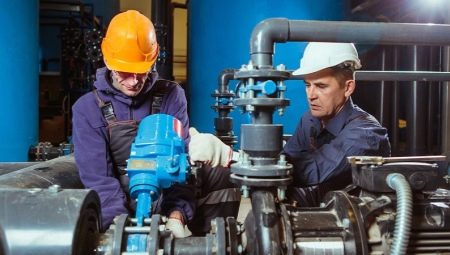
Practically in any branch of industry - the most developed and ramified sphere of production - thousands of people of various specializations will find their use. Including locksmiths for the repair of technological installations. Let's find out what this specialist is, what he does in the workplace, where he studies in order to get admission to work.
Peculiarities
It should be noted right away that Technician repair technician is one of the purely blue-collar occupations... Such a specialist is involved in many manipulations with the production infrastructure. The work of a repairer of the main equipment of an enterprise implies:
- disassembly and assembly of equipment;
- diagnostics of individual units and details;
- repair of various mechanisms;
- similar manipulations with pipelines and valves;
- maintaining the operability of electrical, pneumatic, hydraulic inputs and outputs.
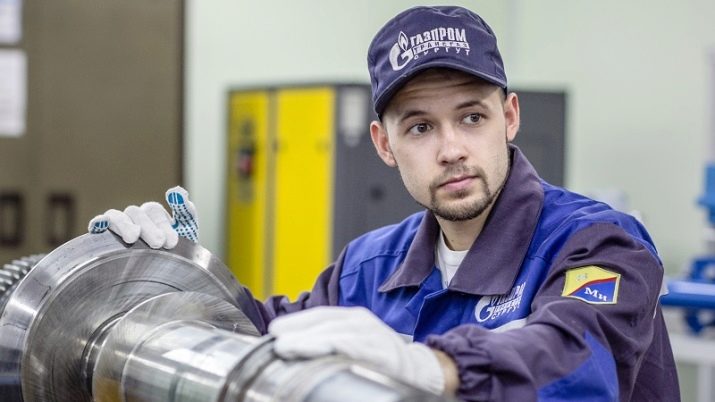
The level of professional skill of a locksmith worker is assessed by the category - the higher it is, the more experienced and valuable the specialist is. In addition, the rank of a locksmith determines the exact range of work that he will perform. But in most cases, this includes the following jobs:
- preparation of simple tools for work, if necessary - their manufacture from scratch;
- plumbing of various components;
- markup for subsequent processing;
- washing, cleaning of parts;
- applying lubricant;
- drilling holes in flanges;
- work with thread on pipes;
- delivery of the work performed under the mark in the acceptance certificate.
The only difference is that for a locksmith of the 5th grade, the task will be much more difficult and responsible than for an employee who has, for example, the 3rd grade.
True, a 5th grade locksmith will not refuse to perform a simple task, but no one will entrust a complex task that a more qualified master can do to a locksmith with a low level of training.
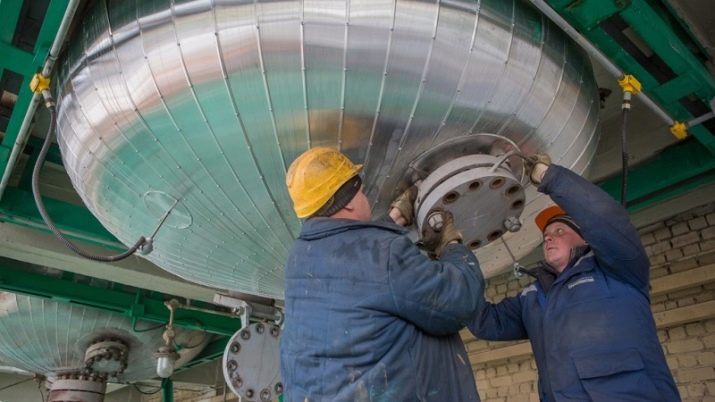
Knowledge and skills
To obtain a 4 or 5 grade, a locksmith must know for sure:
- current orders for the organization;
- all regulations relating to his industry;
- norms for safe and effective repair work;
- technical conditions for repair, test manipulations with equipment;
- basic PPR requirements;
- systems of tolerances and landings;
- qualities, roughness parameters;
- methods of cleaning equipment and preparing it for work;
- the device of lifting mechanisms;
- rules for detecting worn-out parts, methods of their restoration;
- requirements for static and dynamic balancing of machines;
- norms for checking revised components and assemblies;
- general equipment operation technology;
- device, purpose and methods of operation of instrumentation and automation systems;
- rules for the operation of the equipment used;
- physical and chemical properties of the substances used, raw materials, semi-finished products and finished products;
- personnel actions in emergency situations;
- first aid rules.
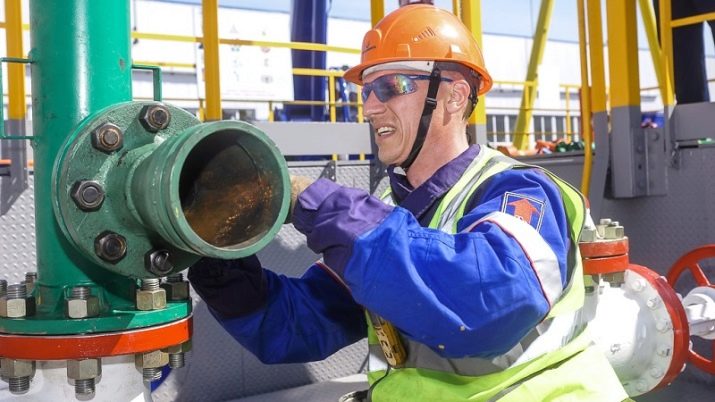
Responsibilities
The main job responsibilities of a mechanic for the repair of technological installations are:
- disassembly, repair, return to working condition and adjustment of various systems;
- testing of especially complex or critical machines, components and assemblies (independently or in conjunction with other specialists);
- flushing and cleaning of parts;
- lubrication of working mechanisms;
- cutting and dressing of threads at pipe joints;
- removal and installation of back-safety and control systems;
- preparation of the serviced equipment for inspection and its implementation;
- slinging of goods (if there is a tolerance);
- scraping parts;
- work with pneumatic, electrical, hydraulic devices;
- work with shutter, control and safety valves.
At level 2, the locksmith should already be ready to work with particularly complex technological systems, which can only be disassembled and repaired using special mechanisms. He needs to be ready for manipulations with a tense and even tight fit of technological units.
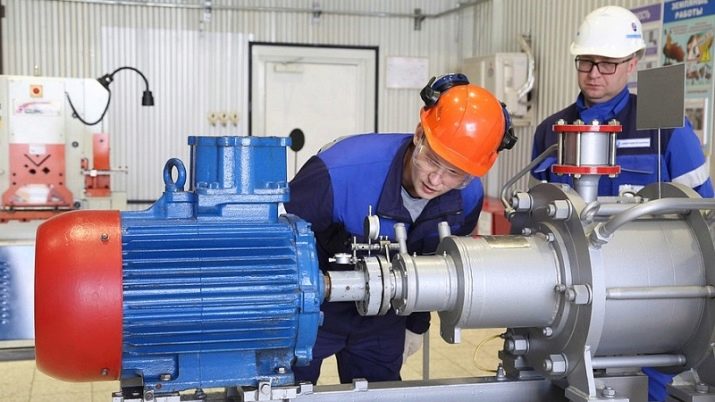
Common jobs at this level are:
- repair of the body of machines and mechanisms without heat treatment;
- assembly of ventilation ducts;
- repair and check of operation of blowers;
- regulation, preparation for operation of compressors;
- scraping of bearing shells;
- testing of smoke exhausters, screens, granulating equipment and ball mills;
- repair of industrial chemical reactors;
- repair of centrifuges.
6th grade specialist assembles and centers gearboxes in air coolers. If there is a granulator on the site, the locksmith rejects its parts, repairs and assembles the drive head, centers the electric motor and the knife support. In drum vacuum filters, you need to be able to change intermediate bearing shells, repair faceplates, and adjust distribution heads. And then - to hand over the finished device into operation.
In centrifugal compressors, a locksmith repairs labyrinth seals and balances the rotor. He adjusts, regulates and tests gas-engine compressors. In production, a locksmith also has to repair and hydraulically test waste heat boilers. If a plant uses lens seals on pipelines, they need to be repaired periodically.
In tube furnaces, hydraulic or pneumatic tests of the coils are carried out from time to time.
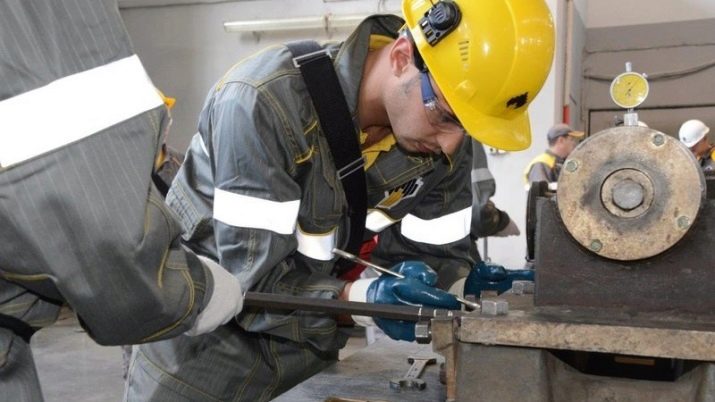
Education
Locksmiths for the repair of technological installations are trained secondary specialized educational institutions. In the Russian capital, such an education gives 54th College of Communications. For residents of the Volga region, it will be more correct to act on Faculty of Secondary Education of the National Technological University in Kazan... But for the population of Western Siberia and the Urals, it is more logical to submit documents to the industrial and economic college in Omsk. From other centers useful to note:
- College of Industry Technologies and Service Sectors in Khabarovsk;
- state college in Orenburg;
- ANO DPO "Complex Center for Personnel Retraining" (Moscow);
- ANO DPO "UMC" Labor Safety "" (Bryansk);
- diversified center "Phoenix" (Chelyabinsk);
- training center "PromResource" (Moscow);
- CHOU DPO UC "Knowledge" (Volgograd);
- Institute of Continuing Education at Tyumen State University;
- StroyBusinessConsult (Krasnoyarsk).
Often, training is carried out in the workplace, and qualifications are then consolidated after listening to lectures and passing qualifying exams in training centers in many cities or production commissions.

Where does it work?
On average in Russia, the income of such a specialist ranges from 25 to 40 thousand rubles (depending on the qualification category). At the same time, the maximum bar in some organizations can be higher than 100 thousand rubles. It is curious that in Moscow the average salary of locksmiths is only 40-46 thousand rubles, the same is in Samara and Voronezh. The minimum rate - 25 thousand - is registered in many places in our country.
The leaders (over 40 thousand rubles) also included:
- Ufa;
- Krasnoyarsk;
- Vladivostok;
- Rostov-on-Don;
- Permian;
- Ekaterinburg;
- Novosibirsk;
- St. Petersburg.
In any city, such a specialist will be most interesting:
- petrochemical enterprises;
- engineering companies;
- thermal and hydraulic power plants;
- chemical synthesis plants;
- metallurgical and metalworking enterprises;
- the military-industrial complex;
- large repair shops.









